I spoke about it as a joke: “I’m going to the beach for a week and I’m going to read War and Peace.”
But it was never a joke.
Pretty much the opposite of a “beach read,” War and Peace is Tolstoy’s epic classic; when people think of dense Russian literature, this is what they think of. The copy I picked up is nearly 1000 pages long with minuscule writing. It’s a brick.
My reasons for reading it in Kabak, on my vacation, are both personal and philosophical.
First, the personal.
I have a tradition I started in 2010: every summer, I read one work of classic Russian literature. In 2010, I was working a job I hated and most of my escapism that summer came from the books I read on my commute and lunch break. However, I’m a voracious reader and I had finished most of the volumes in my apartment; the one left was an old copy of Anna Karenina I’d taken from my parents’ basement. I started reading it.
Any hesitation I felt about reading this “difficult” book melted away when I realized that it was actually delightful. Sure, some of it was dry (just skim all the times Levin talks about tilling the fields), but most of it was exciting and engaging. And I realized that a whole subset of literature had eluded me, simply because I was put off by its reputation.
The next summer, I traveled with my sister through Spain and the Balkans, and I decided to continue the tradition and carry along Dostoyevsky’s The Brothers Karamazov. This was a practical consideration; I read very fast and I didn’t want to carry too many books, so I figured something lengthy and dense would last longer. After two summers of Russian literature, a tradition was born.
I haven’t been perfect– I skipped 2012 because life got in the way– but for the most part, I’ve stuck with my informal challenge. In 2013, I read Crime and Punishment. (Really great, and a much quicker read than I was expecting.) In 2014– the last time I was in Kabak!— I read The Master and Margarita by Bulgakov. (By far the best– wickedly funny and joyfully dark. A friend told me this was every Russian literature major’s favorite read.) This year was finally time for the big one. When better than the week I’d be on a beach, with nothing else to do but think and swim? (And climb waterfalls?)
And that brings me to the philosophical reason why you should read dense literature in the summer, particularly on a beach vacation.
Summer is perfect for sitting outside in parks and reading. When you’re at the beach, it’s even better. I know most people prefer frothy, easy books in the summer, and I don’t begrudge that. (Have I ever mentioned my addiction to mystery paperbacks? It’s pure candy.) But all that time is perfect for really digging deep into a book that might seem insurmountable the rest of the year. I know that typical “beach reads” are usually so engaging that I finish them too fast; I relish the opportunity to sink my teeth into a big novel and just immerse myself in it. Big books are perfect for those times when life has less distractions. Just the beach, the sea, and Tolstoy. (Or whoever.)
So why not take the challenge? Pick up that big old novel that you promised you’d get around to someday and take it out this summer. The days are long.
Now, what to read next summer?
(These picture were taken with my Holga, a perfect light-weight and lo-fi machine for capturing a vacation. Sure, they’re blurred and monochromatic, but I wouldn’t want it any other way.)
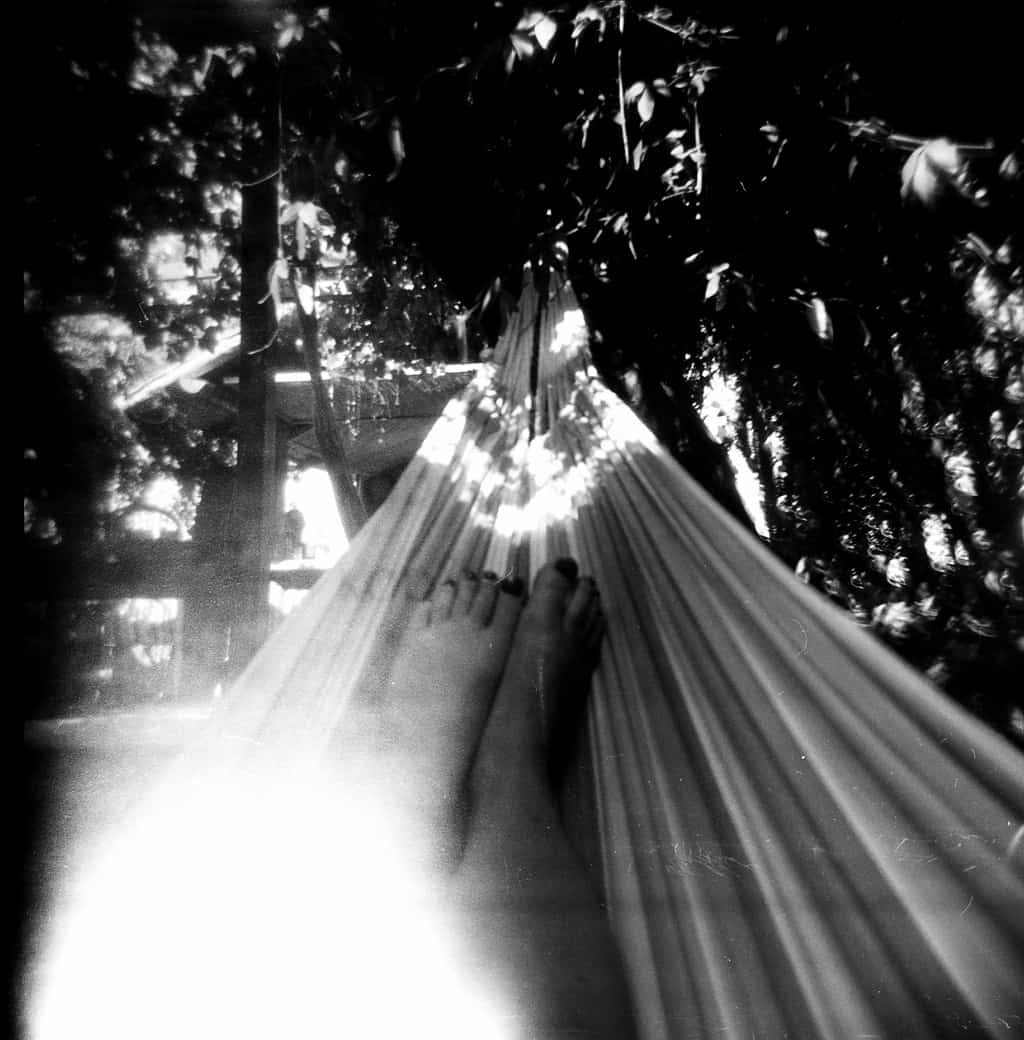
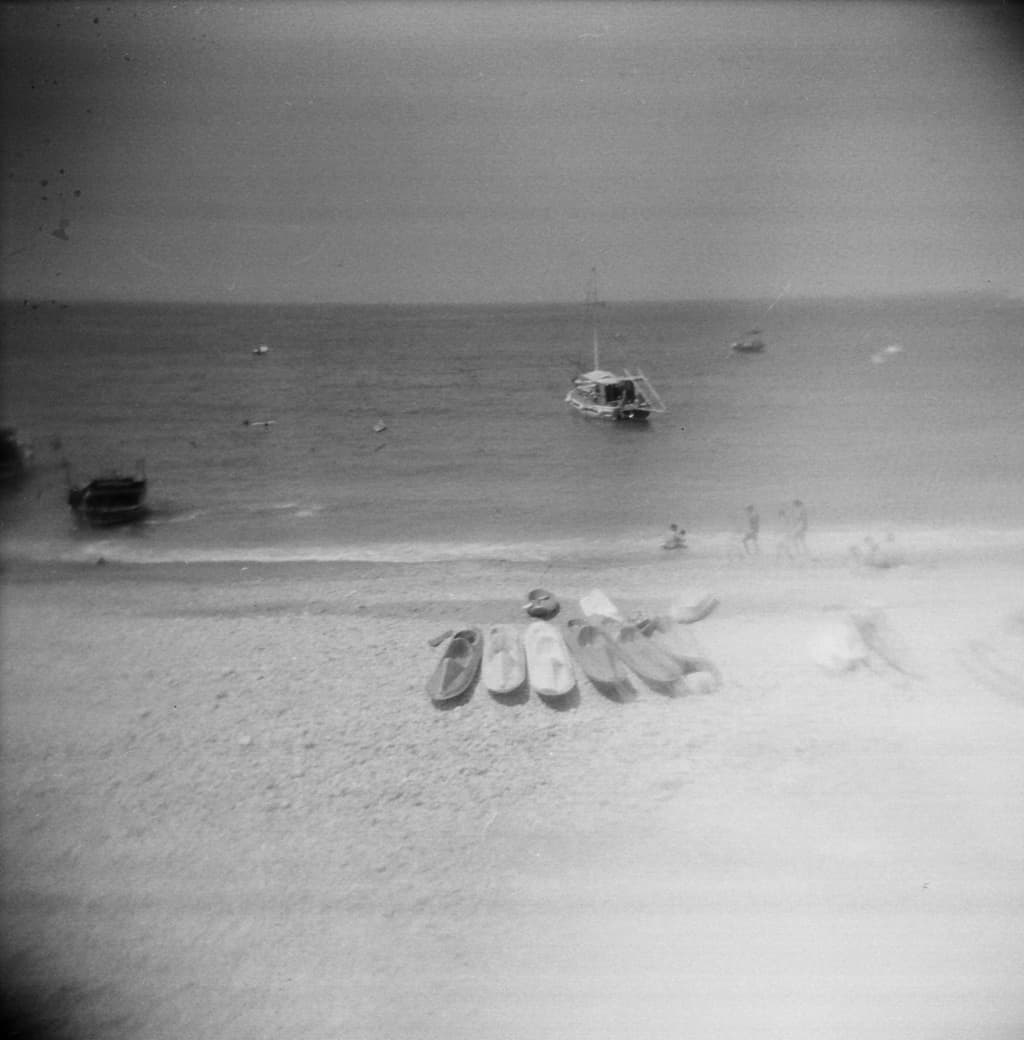
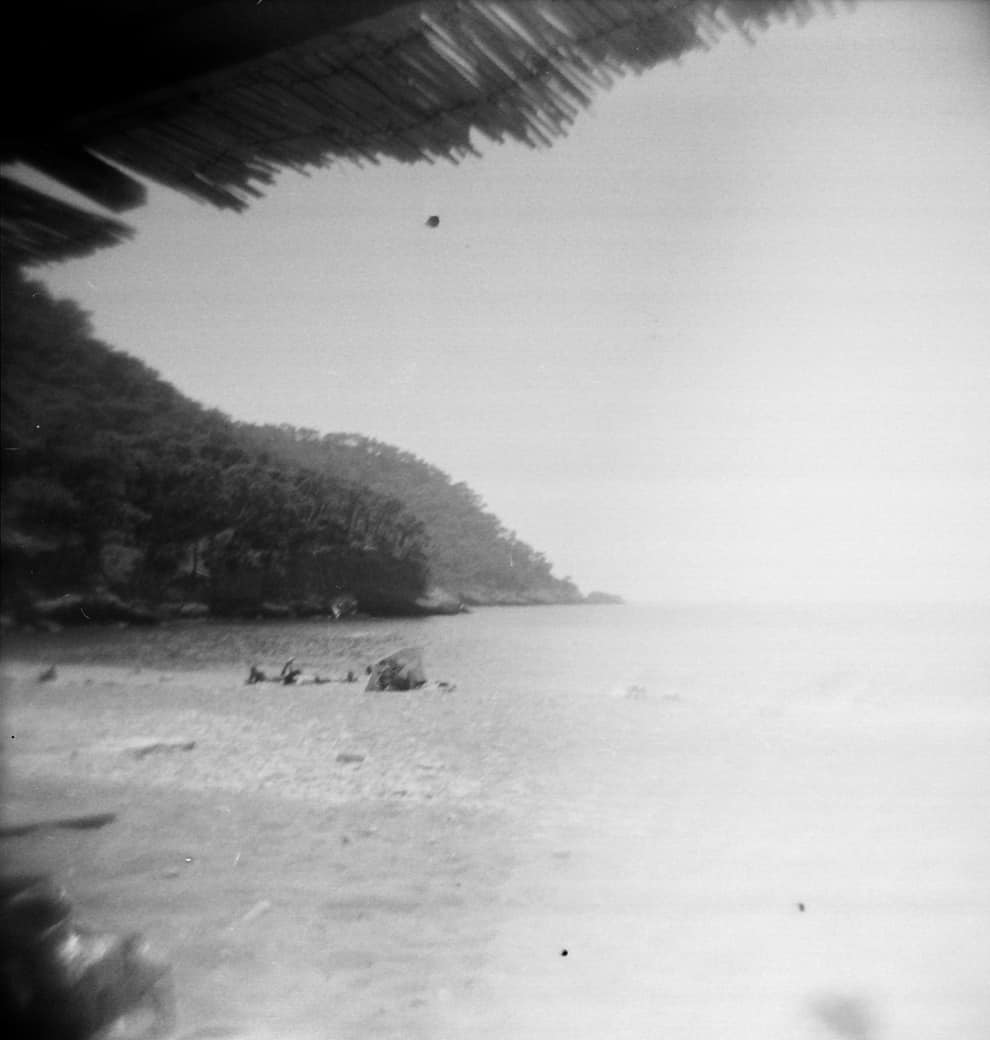
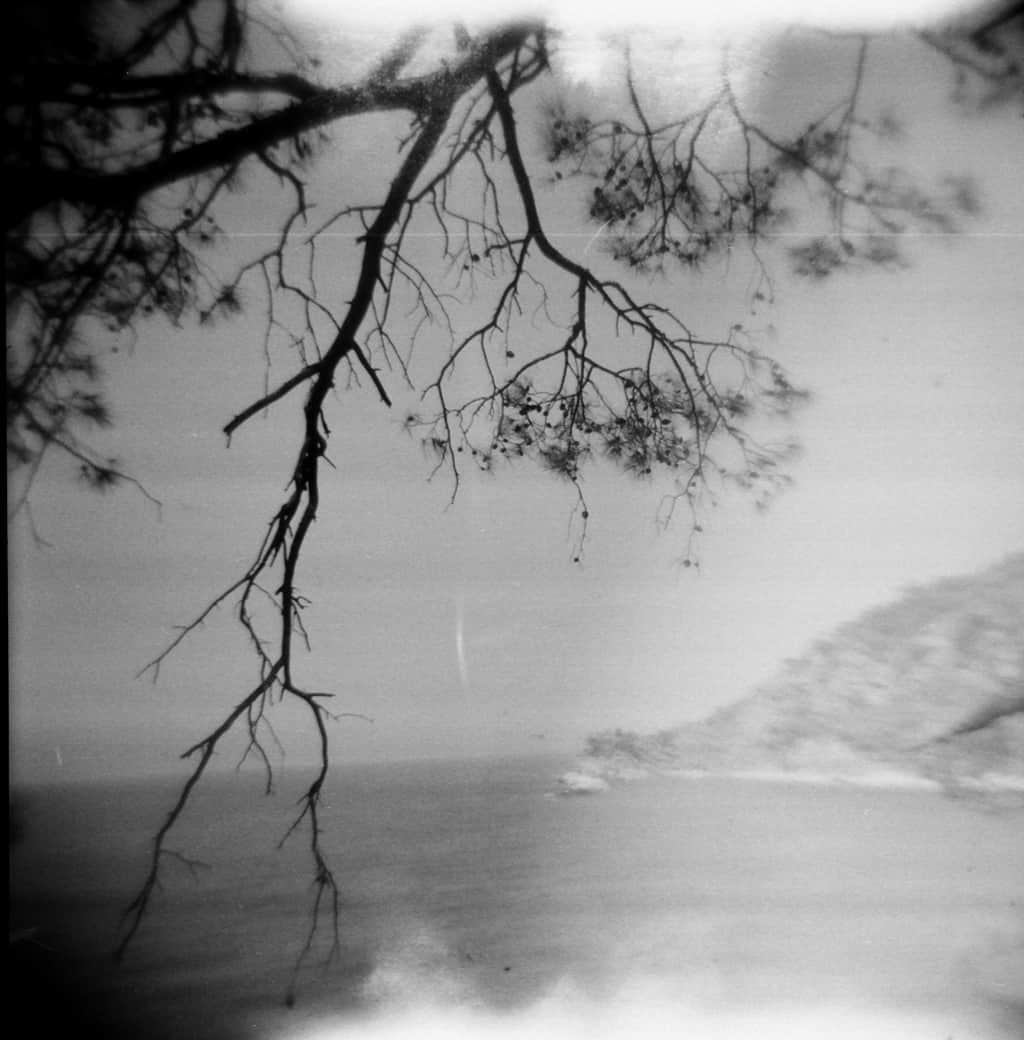
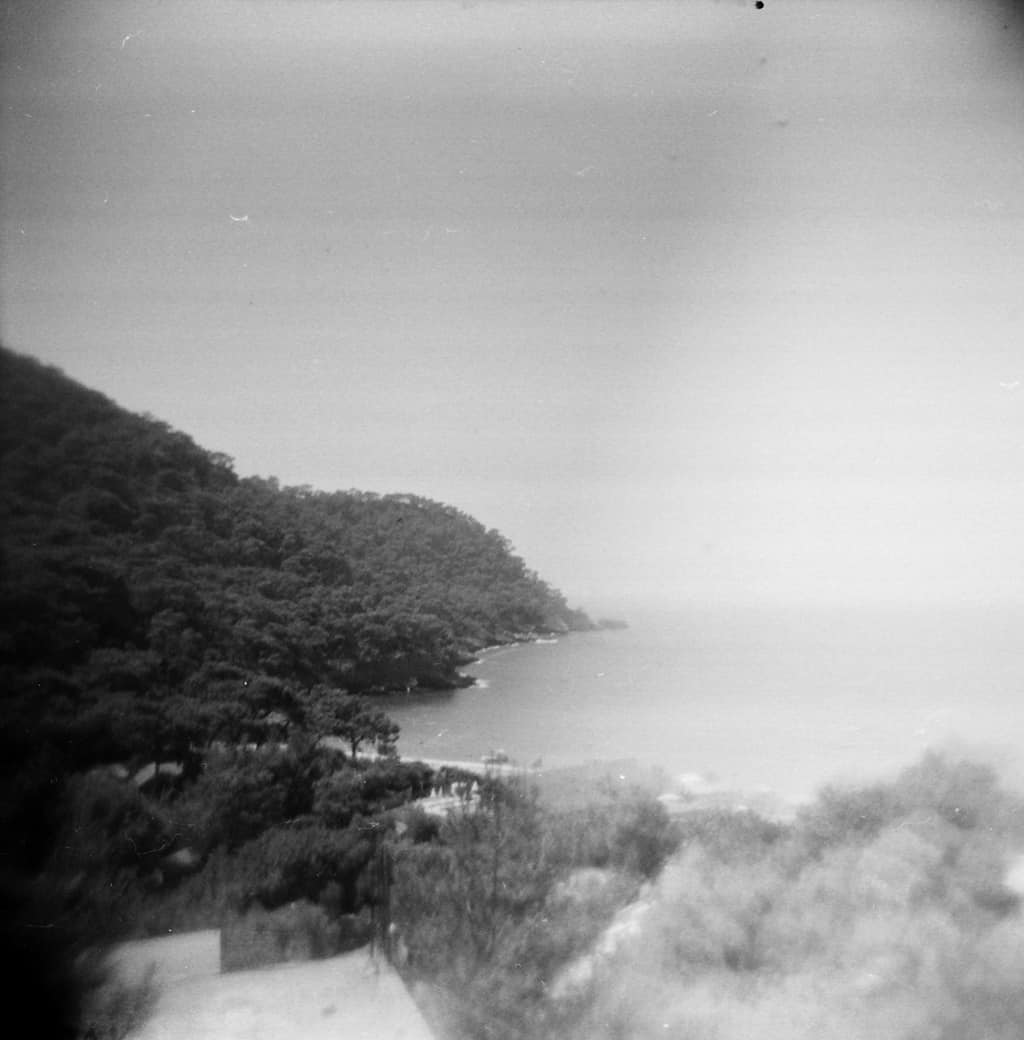
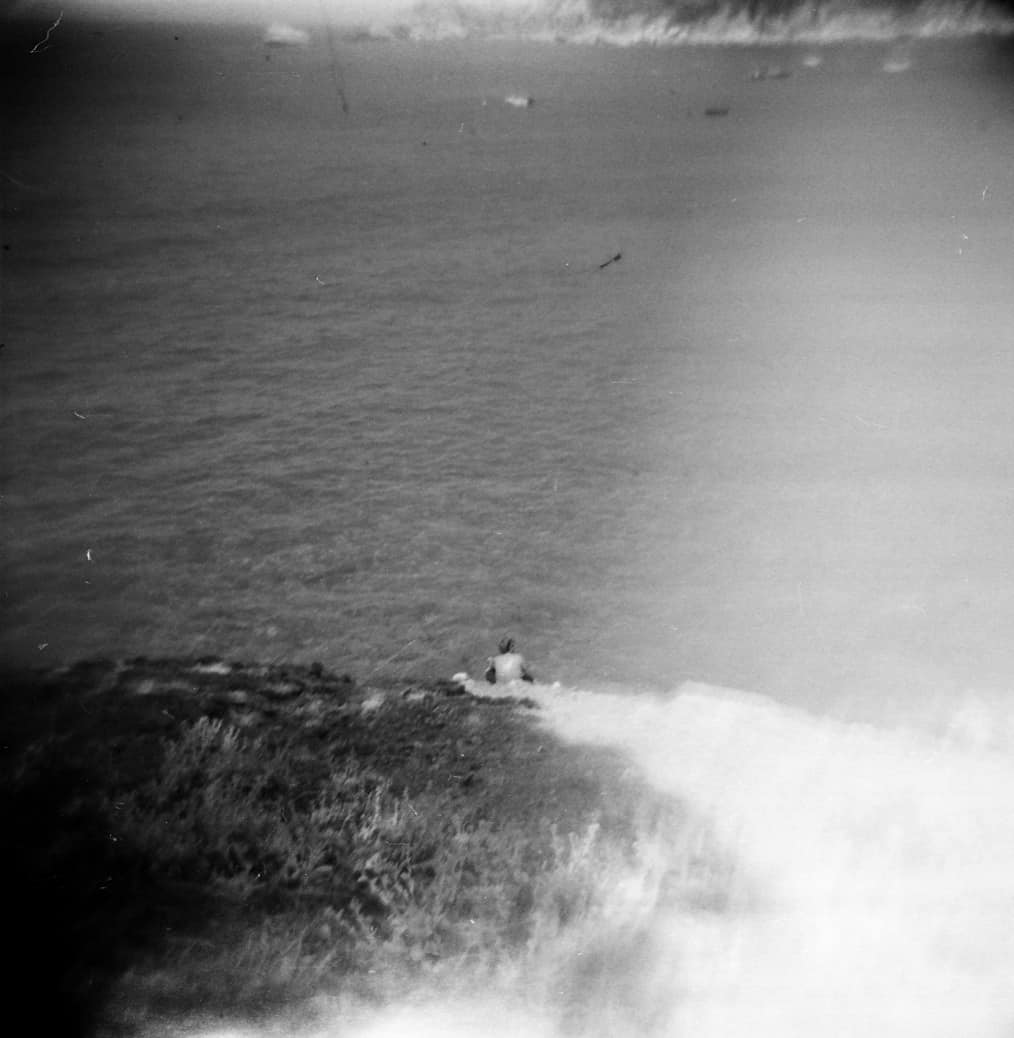
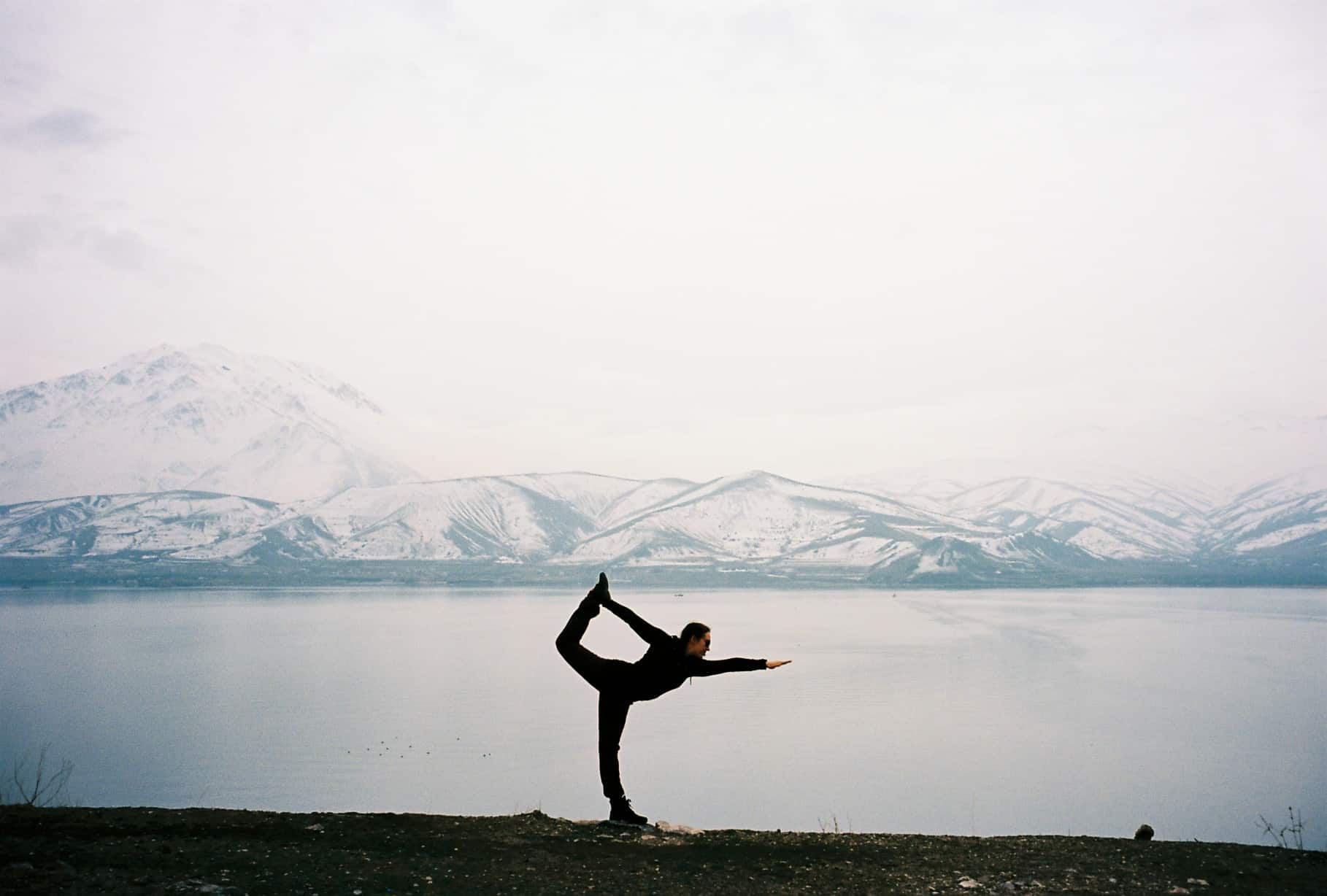
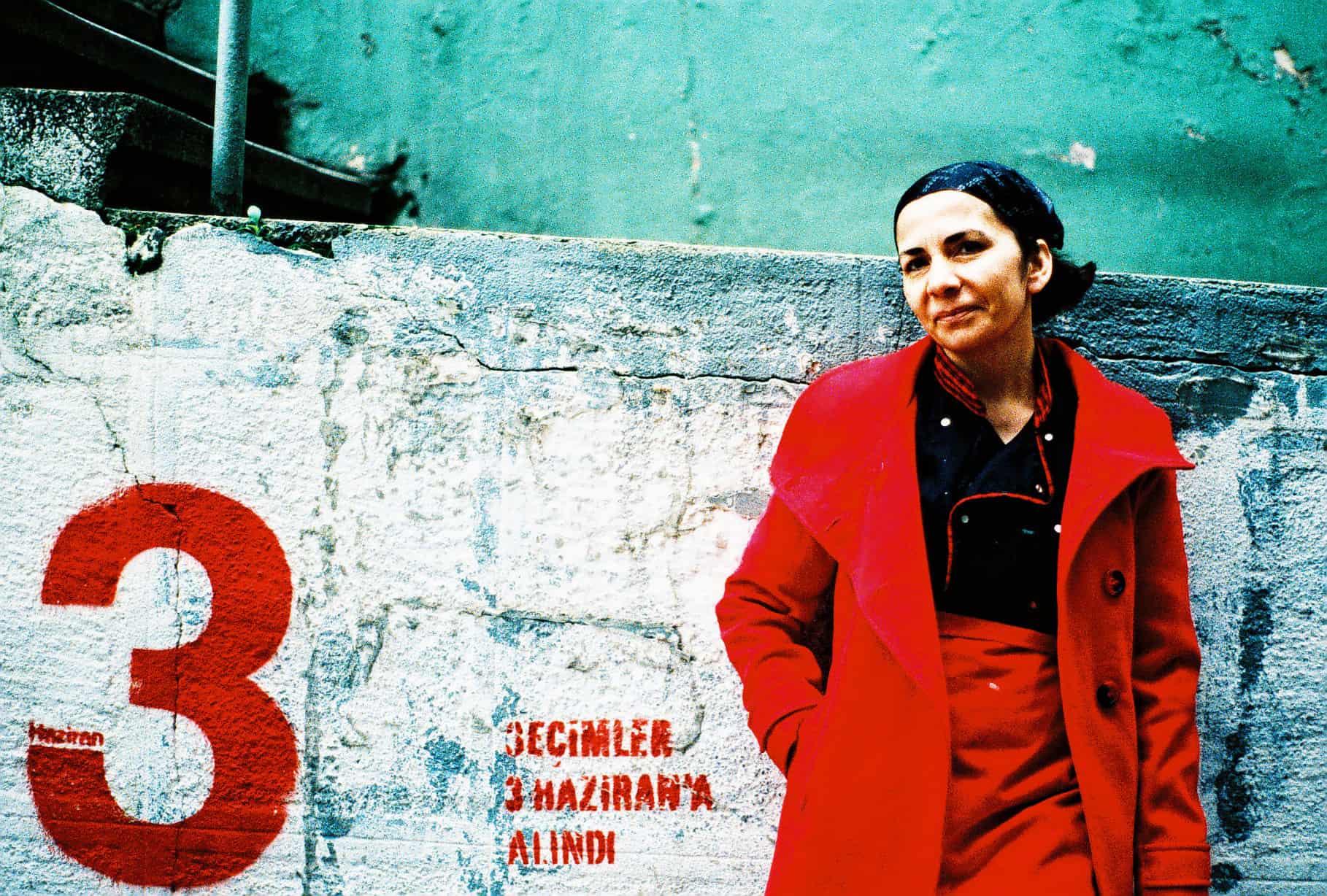
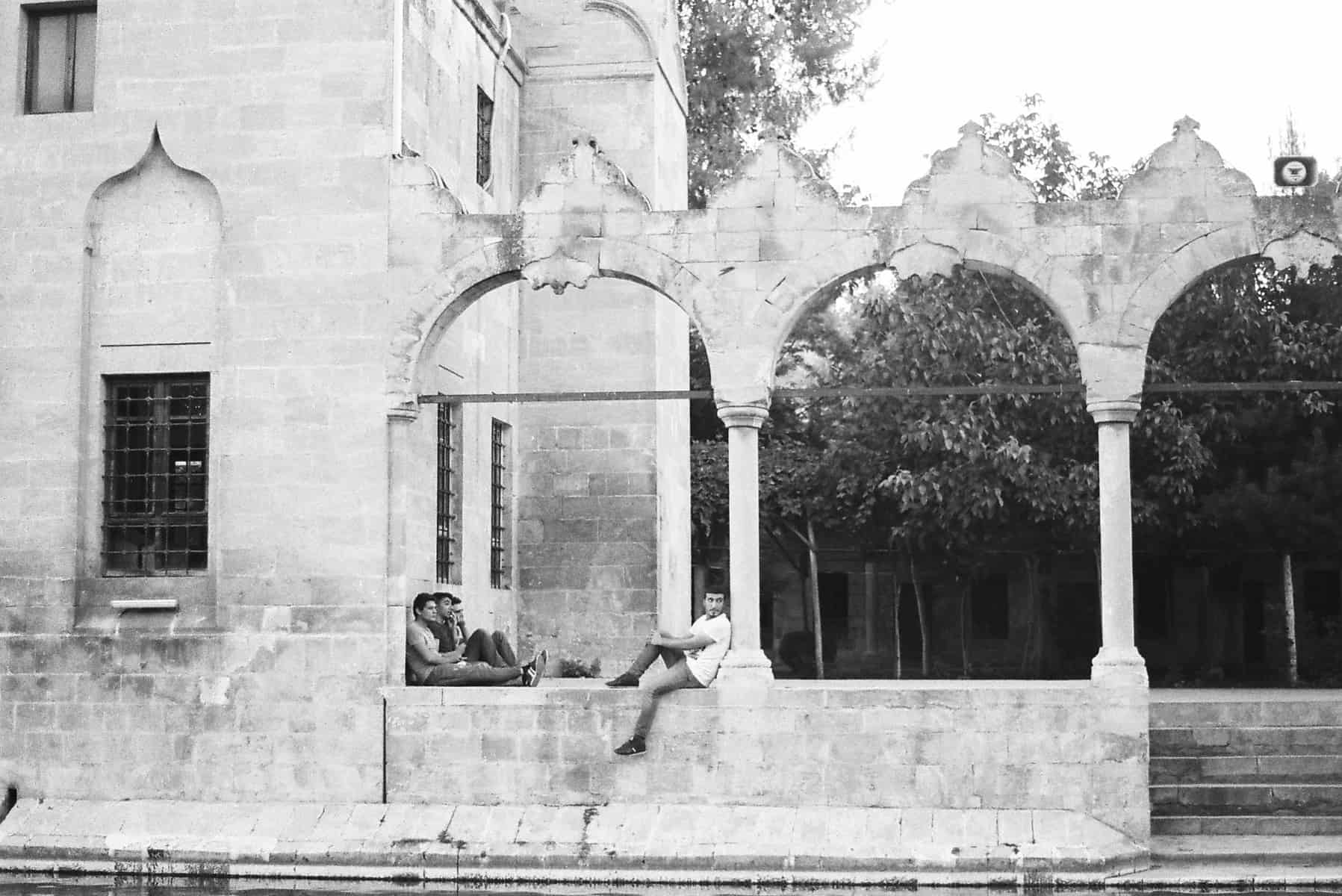
17 Comments
zof
August 27, 2015 at 4:14 PMI read most of the Russian literature greatest hits when I was in high school, but now I have a new challenge for myself. Read the same stuff IN RUSSIAN. I have Dostoyevski’s “Idiot” on my kindle and I’m planning to start as soon as I actually have a free day. Reading challenges are great.
Katrinka
August 28, 2015 at 12:19 AMThat’s an awesome challenge! A Russian-speaking friend of mine pointed out that originally, W&P is in Russian and FRENCH, which made her hate it when she read it in school. Of course, my English copy just translated all of it. Good luck!
Emilie
August 28, 2015 at 12:09 AMHey! Someone just recommended The Master and Margarita and I felt embarrassed that I’d never even heard of it. Excited to pick it up soon.
Katrinka
August 28, 2015 at 12:20 AMThe Master and Margarita is SO GOOD, you are going to love it.
Polly
August 28, 2015 at 12:18 AMUgh. I struggle-bussed through so much Russian lit (in Russian) through college that it kind of ruined it for me. That said:
Fathers and Sons, Turgenev / Dead Souls by Gogol / Evgeny Onegin by Pushkin are all good bets! If you open yourself up to Soviet lit, I’ve got a whoooole ‘nother list!
Katrinka
August 28, 2015 at 12:21 AMThank you for the suggestion, Polly! I was hoping you’d chime in. And I am definitely open to Soviet lit, because this yearly challenge doesn’t really have rules… bring it on!
Barbara
August 28, 2015 at 1:26 PMLove this idea 🙂
Katrinka
August 28, 2015 at 3:05 PMThank you Barbara!
Susanna
August 28, 2015 at 6:14 PMI love your challenge. I’m only 19, but my big brother convinced me to give Russian lit a try when I was in early high school and I’ve been hooked ever since. War and Peace if my favorite novel of all time; I hope you are enjoying it!
For next summer, why not try Pushkin’s Eugene Onegin? Make sure to get a good translation. I started Eugene Onegin and thought it was completely boring, but then my brother took a look and realized I was reading a translated that had lost a whole lot of Pushkin’s hilarious wit and poetic beauty. I tried again with another version and fell in love.
Finding a high quality translation is really important, not only for poetry but for all translated literature.
Katrinka
August 29, 2015 at 2:08 PMThat’s awesome! Good job, big brother. Thank you for the recommendation, I’ll add Eugene Onegin to the list. Which translation do you recommend? I realize that it makes a huge difference– actually I think that’s why these books get such a heavy reputation. A bad translation can ruin a wonderful book!
And I loved War and Peace. It’s so clear why it’s a classic! 🙂
David Pierce
August 31, 2015 at 10:39 AMWhich translation of War and Peace did you read? I was thinking of rereading recently, but could not decide whether to order Pevear & Volokhonsky or Briggs.
In the summer of 1986 I read the Constance Garnett translation, in a Modern Library edition. This was to be the subject of the first seminars of my senior year in college. A column by George Will appeared in the Washington Post that began:
“If you try, you still have time to ruin your summer, with the help of guilt and Tolstoy.
“Your average walking-around American thinks he has pretty much atoned for slavery, the Battle of Wounded Knee and Vietnam. The final form of guilt to which Americans are prey flows from this fact: Years ago a professor assigned War and Peace and everyone cheated. They read an abridgement. So each summer they take the book to the beach, and then doze off, yet again, many chapters before the battle of Borodino.
“That book is too long. Or, what is much the same, August is too short. So shove Tolstoy back on the guilt shelf, up there next to Proust, and pack instead two new novels, The Great Pretender by James Atlas and The Conduct of the Game by John Hough Jr. . . ”
I did not take Will’s advice. I just read War and Peace. I started rereading in the following summer, but did not finish. Recently I reread the historical essay at the end, but did not quite find it as I had remembered.
Meanwhile, you may consider Oblomov: I enjoyed it a few years ago.
Katrinka
September 10, 2015 at 7:25 PMI read the Maude translation, which was perfectly fine. I know sometimes the translations can really be a slog, but this one was fine. I LOVE that quote from the Washington Post (though obviously I disagree with it), I think that’s how most people feel about Tolstoy! Also, his essays at the end of the book were actually my least favorite part. The story is so wonderful; I found the essays quite dry.
Adding Oblomov to the list, thank you for the recommendation!
My Favorite Reads of 2015 | Radioenergy.info
December 12, 2015 at 11:36 PM[…] I’ll take the route of my friend Katrinka and read a big, heavy Russian novel while on vacation — something by Tolstoy or […]
My Favorite Reads of 2015 | TravelBro
December 13, 2015 at 3:45 AM[…] I’ll take the route of my friend Katrinka and read a big, heavy Russian novel while on vacation — something by Tolstoy or […]
My Favorite Reads of 2015 | Adventurous Kate
December 14, 2015 at 1:00 PM[…] I’ll take the route of my friend Katrinka and read a big, heavy Russian novel while on vacation — something by Tolstoy or […]
Mary B
December 16, 2015 at 11:30 PMI decided to read Anna Karenina on my 3-month trip this year – just as you said, partly for practical reasons ($0.99 on Barnes and Noble and it’ll keep me busy for a long time!), and partly because I’m on vacation, when else am I really going to push myself to read a 1000-page book? My only previous Russian novel was Crime and Punishment, which I really struggled with (all their names sounded the same! I couldn’t keep track of who was doing what to whom), but I surprised myself by really enjoying Anna Karenina. Maybe next trip I’ll check out The Master and the Margarita – I’d never heard of it before, so thanks!
Katrinka
December 17, 2015 at 12:30 AMYou are not the first person who’s mentioned the difficulty with names in Dostoyevsky to me! Actually when I read The Brothers Karamazov, they had a handy little guide in the beginning of the book explaining everyone’s many nicknames, thank goodness. The Master and Margarita is much easier to keep track of. Enjoy!